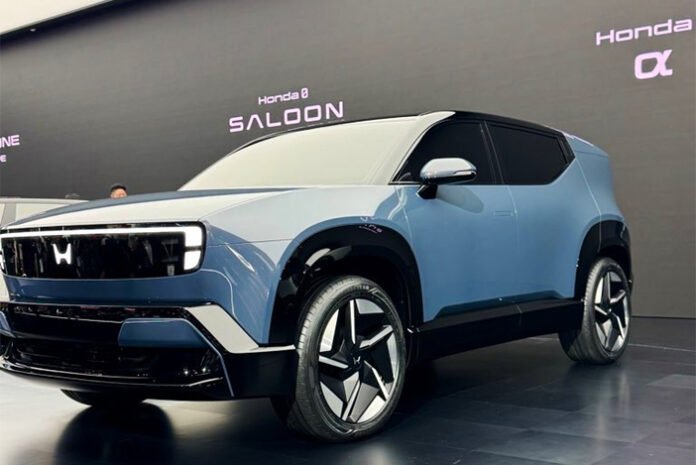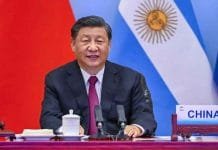The Japanese auto giant Honda Motor Company has announced a bold new strategy for India: 10 new car launches by 2030, including 7 SUVs and 3 electric vehicles (EVs), in a move that signals a major comeback in one of the world’s most competitive car markets.
The plan, unveiled during a press event at Honda’s Tapukara manufacturing plant in Rajasthan, aims to reestablish the brand as a top-tier player in the Indian automotive landscape — a market that’s rapidly evolving toward SUVs and electrification.
🏎️ Honda’s Reboot Strategy: “India 2030 Vision”
For years, Honda has been criticized for its limited SUV lineup and slow EV adoption in India. But now, the automaker is shifting gears dramatically.
Under the “Honda India 2030 Vision”, the company will roll out a diverse portfolio of cars spanning multiple price points and fuel technologies — from compact SUVs to luxury EVs.
Takuya Tsumura, President and CEO of Honda Cars India Ltd. (HCIL), said during the announcement:
“India is a strategic market for Honda globally. Our goal is to offer vehicles that blend innovation, safety, and sustainability while matching the needs of Indian customers. By 2030, we will introduce 10 new models — 7 SUVs and 3 EVs — built right here in India.”
This marks Honda’s most ambitious product roadmap in the country since its entry in the late 1990s.
🚙 The SUV Offensive: 7 New Models Coming
Honda’s renewed focus on SUVs reflects changing consumer demand. SUVs now account for over 50% of India’s passenger vehicle sales, and Honda plans to tap into every segment — from compact to premium.
Here’s what’s known so far:
Honda Elevate facelift (2026) – Updated design, ADAS upgrades, and hybrid option.
Compact SUV (Codename: H-3) – To rival Hyundai Venue and Tata Nexon.
Midsize Hybrid SUV (2027) – Positioned between Elevate and CR-V, focused on efficiency.
New-generation CR-V – Likely to be locally assembled for the first time in India.
Premium 7-seater SUV (2028) – Family-focused model competing with Toyota Innova Hycross.
Crossover EV SUV (2029) – Based on Honda’s e:N Architecture.
Honda Elevate EV (2026 launch) – The company’s first full-electric SUV for India.
With this lineup, Honda is clearly targeting every major SUV segment — a space it once lagged behind in.
“The Elevate EV will be our first electric SUV made in India for India,” Tsumura confirmed.
“It represents Honda’s commitment to sustainable mobility and local manufacturing.”
⚡ Electrification: Three EVs by 2030
The company’s EV plans are equally aggressive.
Honda will introduce three new electric vehicles by 2030, starting with the Elevate EV in 2026, followed by a compact city EV and a premium SUV EV based on its global e:N platform.
The vehicles will use locally sourced batteries and components from Indian suppliers, aligning with the government’s “Make in India” and “EV 30@30” goals — targeting 30% EV adoption by 2030.
Honda is also investing ₹4,000 crore to expand its Rajasthan facility into a global EV export hub, with a focus on producing vehicles for South Asia and Africa.
🧭 Manufacturing & Localization Push
Currently, Honda’s Tapukara plant is running at around 60% capacity, producing the Elevate and City models.
With the new launches, the company plans to ramp up production to 100% within two years.
An additional ₹8,000 crore investment has been approved for new assembly lines, hybrid engine production, and EV battery units.
“We are not just importing technology; we’re building it here,” said Yuichi Murata, Head of Product Planning at HCIL.
“By 2028, more than 85% of Honda’s India lineup will be localized.”
This strategy mirrors the success of competitors like Hyundai, Tata Motors, and Toyota, all of whom have expanded through localization and SUV-centric portfolios.
🌍 Competing in a Changing Market
The announcement comes at a time when India’s car market is witnessing intense competition in the SUV and EV segments.
Brands like Tata Motors, Mahindra, Hyundai, and Maruti Suzuki have surged ahead with frequent launches and strong electric plans.
However, Honda believes its global reputation for quality and reliability will help it regain lost ground.
“Our cars have always been about trust, comfort, and driving pleasure. We’re now adding technology and electrification to that mix,” said Tsumura.
Analysts say the move could be transformative.
Auto industry expert Rakesh Batra told INVC Auto News:
“Honda’s 10-model roadmap could revive its market share from the current 2.5% to nearly 6% by 2030 if executed efficiently. The SUV and EV combination is exactly what Indian buyers want.”
💬 Customer-Centric Future
Honda also announced an expansion of its digital retail ecosystem, including online car booking, doorstep delivery, and virtual test drives via its “Honda Virtual Studio.”
By 2027, the automaker aims to have 100% of its dealerships equipped with EV charging infrastructure, ensuring customer readiness ahead of the electric rollout.
“Buying a car will be as easy as ordering it online,” Tsumura added. “Honda wants to make the ownership experience fully connected and effortless.”
🏁 Conclusion: A New Honda for a New India
After years of conservative strategy, Honda is finally back in the fast lane.
With ₹12,000 crore in fresh investments, 10 new models, and a commitment to green mobility, the automaker is positioning itself for a long, sustainable race in India’s booming auto market.
As industry watchers say — this might just be the “second coming” of Honda in India.
“From City to SUV, and from fuel to electric — Honda’s transformation journey has begun,” said auto analyst Meera Kaur.
“If all goes as planned, by 2030, every Indian road could once again echo the hum of a Honda.”
















